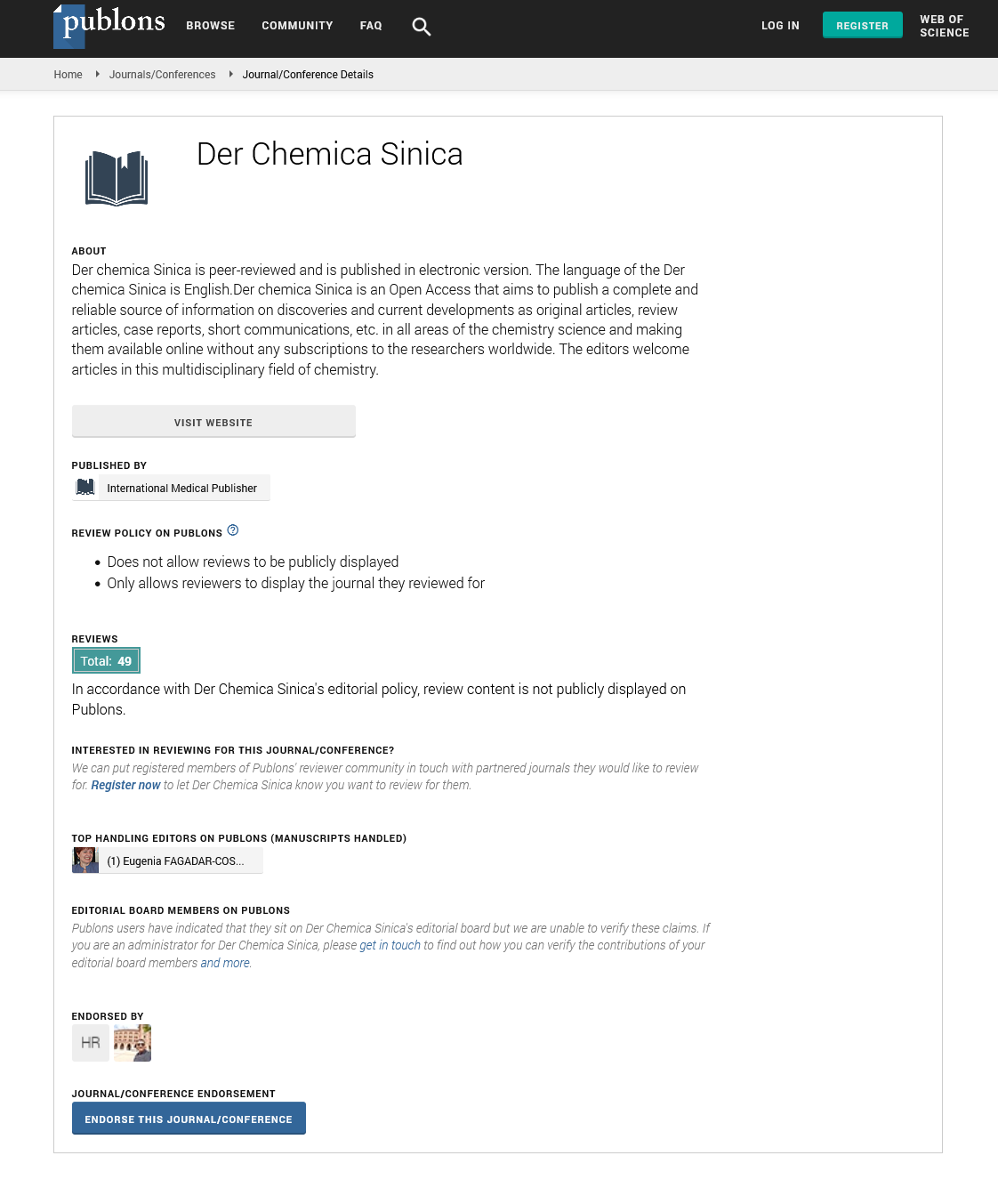ISSN : 0976-8505
Der Chemica Sinica
Abstract
Occupational hazards and environmental health associated with the traditional palm kernel oil extraction method (A case study of the abura palm kernel oil industry in the central regional capital, cape coast of Ghana)
Occupational and environmental hazards associated with our traditional Industries are hardly considered or discussed to provide an improved form for them. With the Palm Kernel Oil Industry in the Central Region of Ghana, it was observed that, some of the daily occupational hazards are exposure to intense fire source, sharp hot flying objects and smoke. Out of the 50 respondents reported 31%, 6%, 26%, 16% and 21% respectively. Similarly, percentage accidents usually encountered during work were cuts (35%), burns (33%), Oil splashes (26%) and oil spills (6%). Of the various wastes generated, fiber was (21%), residue (38%), shells (38%) and wastewater (3%) and their main disposal method was landfilling (36%), fuel source (36%), selling (25%) and dumping (3%). Some other negative effects of that practice on the environment were bad odor (8%), blocking of waterways (4%) and particulate matter (fiber) recording (4%). Some of the sicknesses usually reported at the hospital by both the employees and residents within the locality were abdominal pain (2.5%), coughing (12.7%), itching eye (21.5%), sleeping disorders (5.1%), respiratory problems (17.7%) headache (13.9%), fatigue (3.8%), score throat (8.9%), general body ache (3.8%) and Malaria (10.1%).
Author(s): Michael Akrofi Anang and Kwasi Opoku Boadu
Abstract | PDF
Share This Article
Google Scholar citation report
Citations : 6019
Der Chemica Sinica received 6019 citations as per Google Scholar report
Der Chemica Sinica peer review process verified at publons
Abstracted/Indexed in
- Google Scholar
- Open J Gate
- Genamics JournalSeek
- China National Knowledge Infrastructure (CNKI)
- Directory of Research Journal Indexing (DRJI)
- Publons
- MIAR
- International Committee of Medical Journal Editors (ICMJE)
- Serials Union Catalogue (SUNCAT)
- Geneva Foundation for Medical Education and Research
- Secret Search Engine Labs
- Euro Pub
- CAS (Chemical Abstracting Services)
- University of Barcelona
Open Access Journals
- Aquaculture & Veterinary Science
- Chemistry & Chemical Sciences
- Clinical Sciences
- Engineering
- General Science
- Genetics & Molecular Biology
- Health Care & Nursing
- Immunology & Microbiology
- Materials Science
- Mathematics & Physics
- Medical Sciences
- Neurology & Psychiatry
- Oncology & Cancer Science
- Pharmaceutical Sciences
